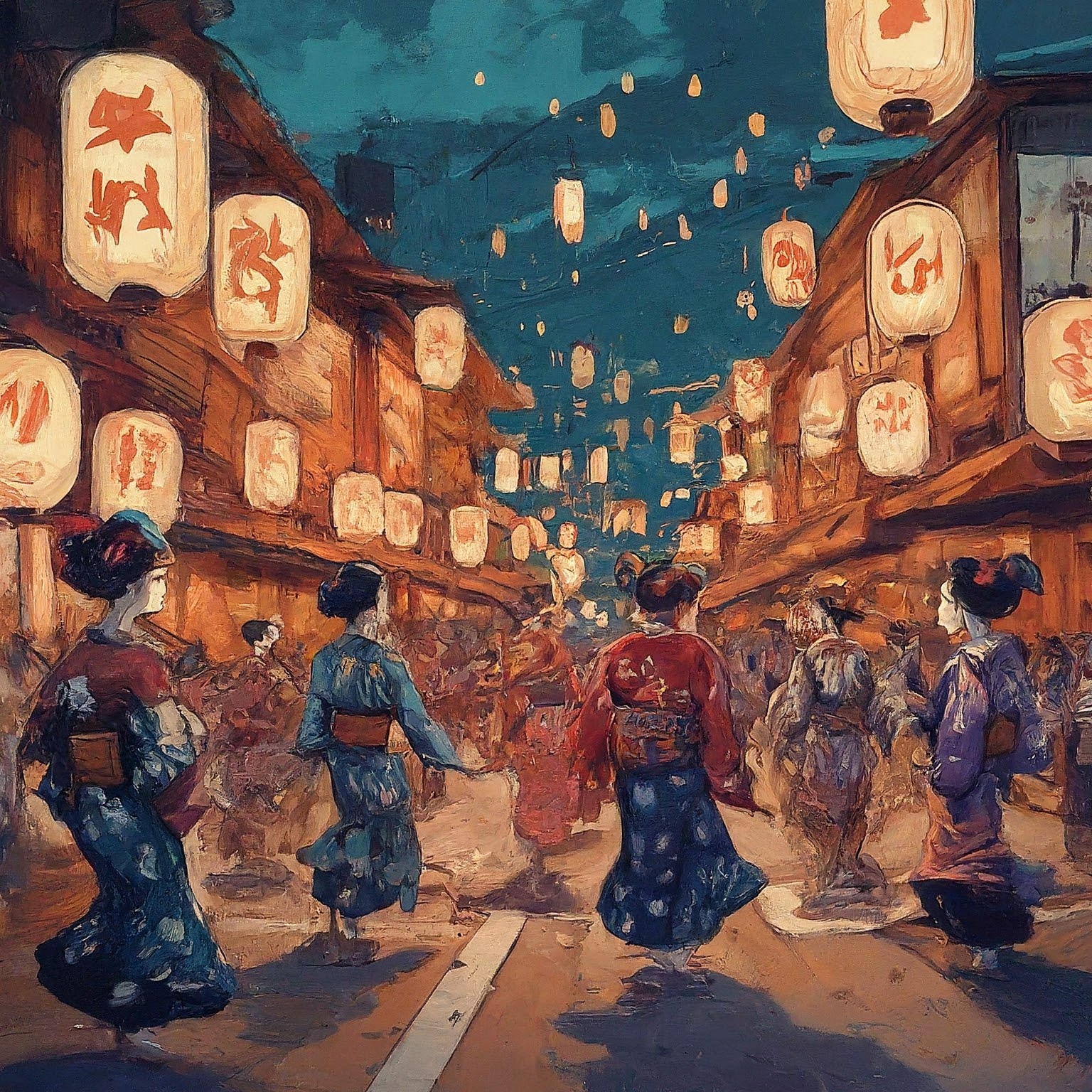
Celebrated in mid-August, Obon is one of the two main periods with Golden Week where people can hope to get long holidays especially since many businesses and offices close during this time to let employees travel and participate in the festival’s traditions.
But what is Obon?
Traditionally, Obon is a Japanese festival to honor and remember the spirits of ancestors. It’s a time for family gatherings, remembering loved ones who have passed away, and performing rituals to welcome their spirits back home.
Origins of Obon
The Obon festival has its roots in Buddhism, dating back over 500 years. The story behind Obon comes from the tale of Mokuren, a disciple of Buddha. Mokuren used his supernatural powers to look upon his deceased mother and discovered she had fallen into the Realm of the Hungry Spirits and was suffering. Distressed, he went to Buddha for help, and Buddha instructed him to make offerings to Buddhist monks at the end of their summer retreat. Mokuren did this and, as a result, his mother’s spirit was released. He danced with joy, which is said to be the origin of the Bon Odori dance.
Traditions of Obon
- Cleaning Graves: Families visit the graves of their ancestors to clean and make offerings of food, incense, and flowers.
- Bon Odori Dance: This is a traditional dance performed to welcome the spirits of the dead. The dance varies from region to region, with different music and styles.
- Lanterns: People light lanterns to guide the spirits back to their homes. This is called “mukae-bon” when the lanterns are placed at the beginning of Obon to welcome the spirits, and “okuri-bon” when lanterns are floated down rivers or in the sea at the end of Obon to send the spirits back to their resting place.
- Offerings: Families make offerings of food at home altars and temples to honor their ancestors.
Equivalence with Halloween and All Saints’ Day in Europe
Obon can be compared to Halloween and All Saints’ Day in Europe in the following ways:
- Honoring the Dead: Like Obon, All Saints’ Day (November 1st) is a time to honor and remember the deceased. People visit graves and light candles to commemorate their loved ones.
- Spirits and the Afterlife: Halloween (October 31st) has roots in ancient Celtic festivals where people believed that the boundary between the living and the dead was blurred. Like Obon, Halloween involves spirits and the idea of the dead returning to the living world.
- Festivities: All three celebrations involve specific rituals and community gatherings. Halloween has its costumes and trick-or-treating, while Obon has the Bon Odori dance and lanterns.
Conclusion
Obon is a beautiful and meaningful festival that brings families together to honor their ancestors. With its rich traditions and cultural significance, it shares similarities with European celebrations like Halloween and All Saints’ Day, showing how different cultures around the world find unique ways to remember and respect the spirits of those who have passed on. Along with Golden Week, Obon provides one of the few opportunities in Japan for people to enjoy a longer holiday and reconnect with loved ones.
